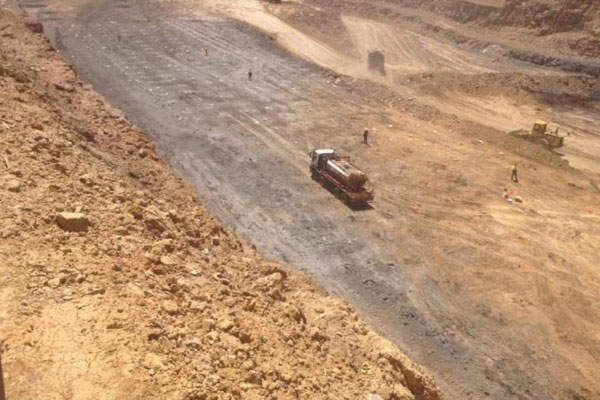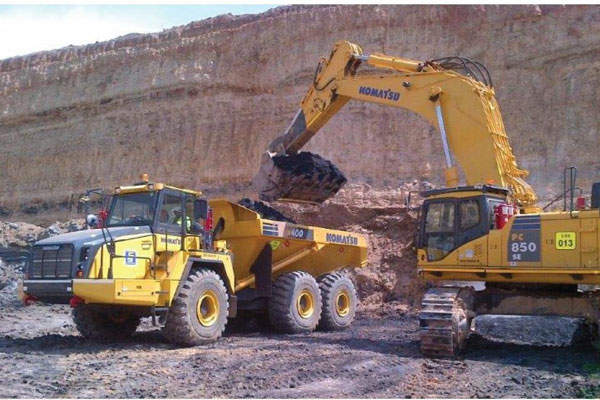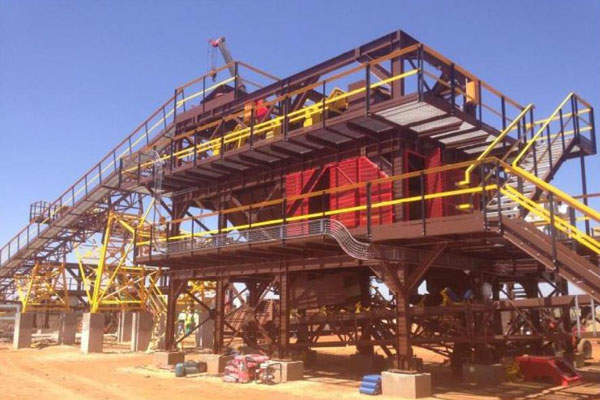
Kangala is an open pit coal mine situated in the Witbank region of Mpumalanga Province, South Africa, and lies 65km east of Johannesburg. Universal Coal owns a 70.5% stake in the Kangala mine while Mountain Rush holds the remaining 29.5%.
The mine comprises three areas, namely Wolvenfontein, Middelbult and Modderfontein. The initial pit is expected to deliver an eight and a half year life-of-mine (LOM) with scope to further extend the mine life by more than 20 years using additional resources.
Construction at the mine began in July 2013 and was fully completed in the first quarter of 2015. First coal was produced in February 2014, followed by first shipment to ESKOM in April. The first export coal sales to Exxaro was made in September 2014.
Geology of the Kangala mine
The Kangala coal mine is located within the Witbank coal field, a part of the Karoo basin. The coalfield stretches from Brakpan in the west and ends at Belfast in the east. The coal seams are contained within the Vryheid Formation and between 80m and 200m thick.
Kangala coal mine reserves
The Kangala mine is estimated to have proven and probable thermal coal reserves of 22.3 million tonnes (Mt). The measured, indicated and inferred thermal coal resources are estimated at 146.1Mt.
Production and sale of thermal coal at Kangala mine
The Kangala mine is expected to produce saleable coal of approximately 2.1Mt from the 2.4 million tones per annum (Mtpa) ROM coal production through its lifetime.
In March 2013, Universal Coal entered into a coal supply agreement with ESKOM, the electricity utility in South Africa, for supplying approximately 2Mt of thermal coal. It also signed a LOM coal off-take agreement with Exxaro for the export-quality thermal coal.
Under the agreement with Exxaro Coal, Universal will transport thermal coal to Exxaro’s Leeuwpan mine by road. It will also transport coal by rail to the Richards Bay Coal Terminal, following which Exxaro will market and export the coal.
Coal mining and processing at Kangala
Box-cut development at the Kangala mine began in July 2013. A 54-hole infill drilling programme was conducted before starting the mining activities.
Coal is processed at Kangala in two stages, namely 320 tonnes per hour (tph) dense media washing (DMS) plant, and BC1/BC2 crushing and screening. The coal allocated to ESKOM is processed using the 350tph crushing and screening circuit.
Kangala mine infrastructure and construction details
The major construction activities include the construction of the BC1/BC2 crushing and screening module, product stockpile base, and topsoil removal. Cold commissioning of the crushing and screening plant was completed in December 2013, while the hot commissioning began in January 2014.
Cold and hot commissioning of the DMS circuit began in June 2014 and was completed by July.
An intersection with the R42 public road was built for the paved product delivery haul road along with a pollution control dam.
Offsite plant construction began in February 2013 and the construction of mine infrastructure began in May 2013. It included construction of seven conveyor structures, and designing of the slew and overland conveyors. The rotary breaker for the DMS washing plant was delivered and installed in November 2013.
The mining fleet at the Wolvenfontein pit of Kangala includes 60t trucks paired with 85t excavators and supporting equipment.
Financing for the Kangala coal mine
Universal Coal obtained a private equity placement of approximately $13.2m (A$12.5m) in September 2012 for equity financing the Kangala mine. Mountain Rush also contributed approximately $5.5m (A$5.2m) towards equity finance.
Universal Coal secured $30.1m (A$33.2m) loan from Rand Merchant Bank for financing the project. It also raised approximately $14.3m (A$13.6m) from African Mineral Exploration and Development Fund in December 2012.
Contractors involved with Kangala mine development
Stefanutti Stocks Mining Services was awarded the mining contract, along with the infrastructure and the EPCM contract.
The plant construction contract was awarded to Mineral Resource Development, who will also be responsible for the operation of the DMS washing plant and the crushing and screening unit.
Related project
Vele Colliery Project, South Africa
The Vele colliery project is located on the northern border of South Africa’s Limpopo province. The mine spreads across ten farms with 8,663ha of land.







